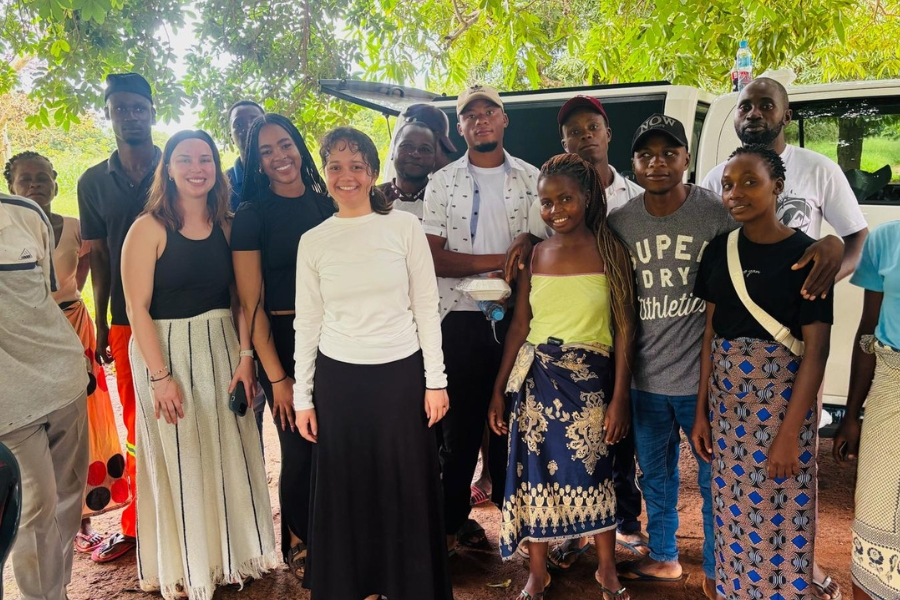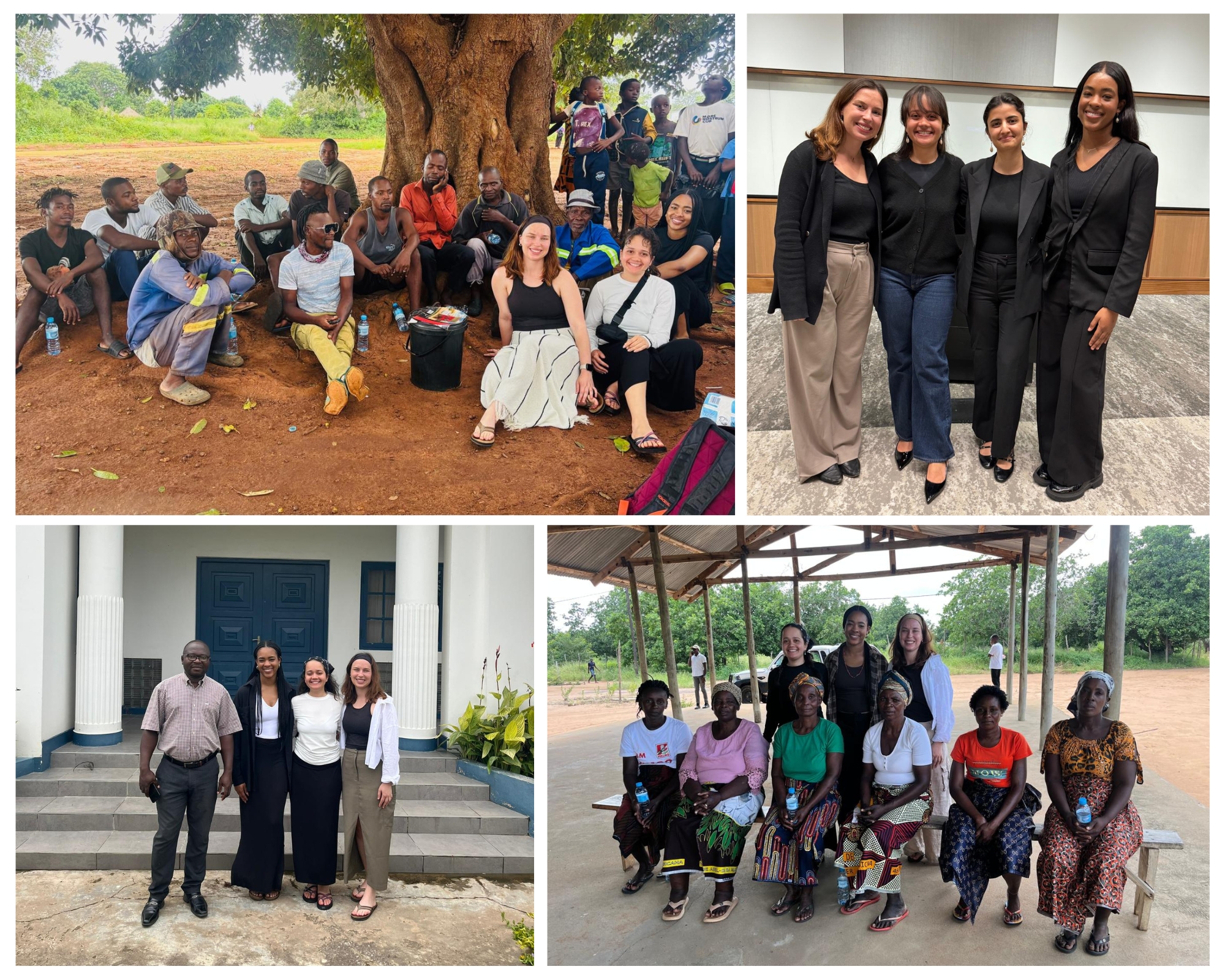Gas Extraction, Gender, and Justice

SAIS Students Uncover the Risks Facing Environmental Defenders in Mozambique
As part of the SAIS Women Lead capstone program, four students from the Johns Hopkins SAIS Washington, D.C. campus spent the 2024–2025 academic year investigating one of the most urgent but underexamined challenges in global environmental justice: how extractive industries impact the safety of environmental defenders, particularly women, in Mozambique.
The project, Extractive Industries in Mozambique: Harnessing Community Consent Mechanisms to Protect Environmental Defenders, was conducted in collaboration with the U.S. Department of State’s Diplomacy Lab for the benefit of the Bureau of Oceans and International Environmental and Scientific Affairs.
Guided by SAIS Vice Dean Chiedo Nwankwor, the student researchers—Katherine Freitag, Khadija Taufiq, Nina Davis, and Andrea Moore—focused their investigation on understanding the dynamics of community consultation, corporate accountability, and the gendered impacts of natural gas extraction, especially in communities affected by South African energy company, Sasol, and its operations in the coastal Mozambican province of Inhambane. Drawing from engagement with over 90 participants through key informant interviews and focus-group discussions with community members, government representatives, legal experts, and frontline defenders, the team synthesized insights into a detailed country case study and policy recommendations.

The students conducted in-country fieldwork in Inhambane province, meeting directly with four communities affected by Sasol’s Pande-Temane gas pipeline. The team’s findings reveal a concerning landscape: while Mozambique has strong legal frameworks that require free, prior, and informed consent from local communities, implementation remains weak. Women are often excluded from decision-making structures and lack compensation for land lost, community consultations are largely symbolic, and concerns of environmental degradation are rarely addressed.
Conducting fieldwork in the Inhassoro and Govuro districts, the team uncovered stories of resilience and resistance, alongside systemic exclusion. Women described waking up at 4 a.m. to tend farmland made barren by soil contamination. Others reported unexplained illnesses, restricted access to clean water, and a loss of traditional livelihoods.
In one case, promised development compensation took the form of a football field. This served as replacement for promised compensation for displaced families and took over valuable farmland, causing more harm than good. “Community members weren’t merely asking for handouts, they were asking for transparency and a seat at the table,” said Katherine Freitag. “Our project emphasized that meaningful consent is not a one-time signature; it’s a continuous, trust-based process.”
The team’s research also illuminated a worrying pattern of repression. Community protests of extractive activities have sometimes been met with armed police responses. One local account described peaceful demonstrators being met with gunfire. In such environments, civil society organizations have become essential intermediaries—educating communities about their legal rights, empowering women, and helping mediate with companies and government officials.
Drawing from these insights, the team members outlined a series of recommendations in their final report, including the creation of third-party environmental review mechanisms, direct compensation for women, and legal protections to ensure access and safety for civil society organizations. They also called for the inclusion of women in all extractive industry governance bodies and decision-making processes.
“Without community trust and gender-inclusive policy implementation, development becomes extraction, and extraction becomes violence,” said Nina Davis. “The path forward must prioritize the protection of both land and the people who defend it.”
The Mozambique-focused practicum concluded with a public presentation of findings to the U.S. Department of State and SAIS faculty in May 2025. As global conversations around just energy transitions and indigenous and environmental rights gain momentum, this project demonstrates how SAIS students are engaging the world’s most complex development challenges through rigorous, gender-sensitive, values-driven research and meaningful partnerships.
Enjoyed reading Gas Extraction, Gender, and Justice? Learn more about what Washington DC campus has to offer.